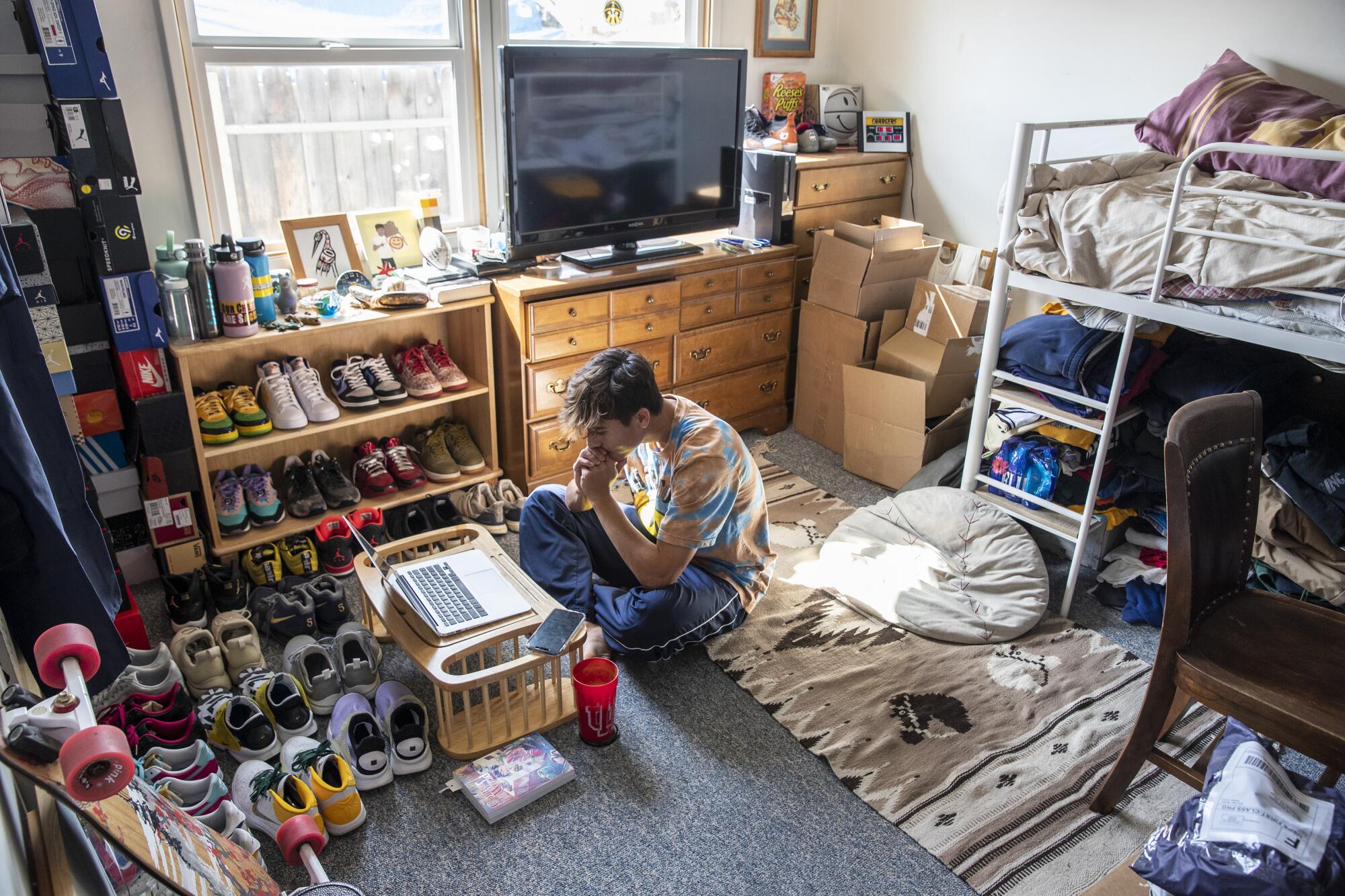
- Share via
When school shut down in March 2020, some students at Alhambra High School welcomed the break. Just a few weeks, they were told, and the coronavirus quarantine will be over.
One year later, members of the Class of 2021, 2022, 2023 and 2024 have redefined the parameters of being a high school student.
They’ve struggled with the isolation of online learning. Unequivocally, they miss their friends and the loud, happy moments in and between classes. They miss kicking it after school and hanging out before practice for band, baseball, basketball. They’ve picked up hobbies, clung to their passions. They’ve fought to stay motivated. Grades have both slipped and risen. They have experienced loneliness.
The Alhambra Unified School District — where 50% of students are Asian, 41% Latino and 65% come from low-income families — has begun the process of reopening its schools, like others in Los Angeles County. But shut out for a year, a freshman, sophomore, several juniors and seniors explain how they have amended dreams and dealt with disappointment — and more than anything, are looking ahead.
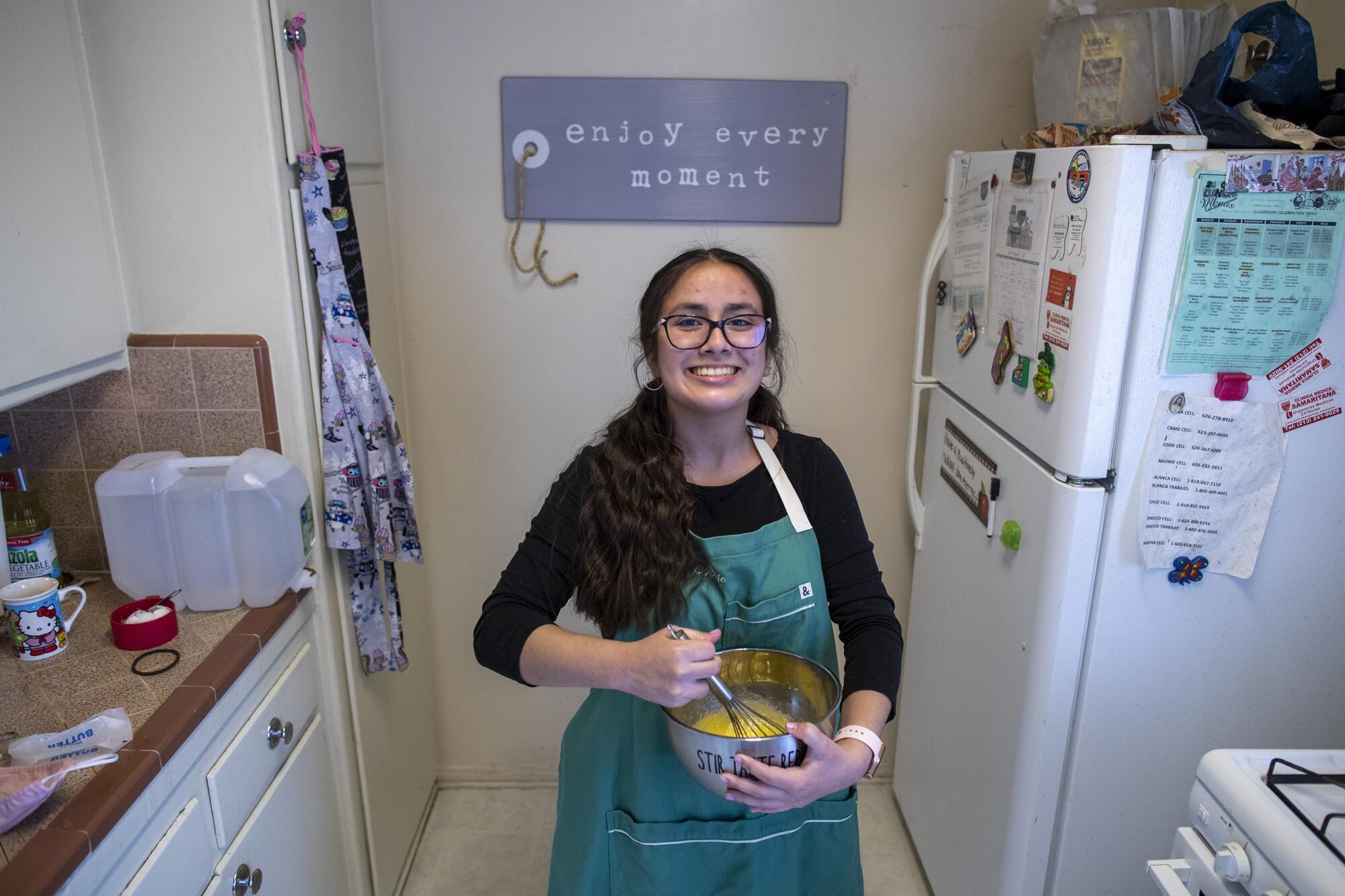
For one freshman, solace in a new hobby
On a Friday in March 2020, Abigail Velazquez and her fellow eighth-graders went home early, believing they would be back together soon. But as their return to Fremont Elementary School, a K-8 campus, was repeatedly delayed, Abigail lost hope.
“That kind of realization was just so sad to me,” she said, “that I wouldn’t get to see my friends for a very long time.”
Her school held a drive-through graduation, and she waved goodbye from the passenger-side window to her beloved teachers.
Abigail, now 14, looked forward, imagining the first time she would walk through the doors of Alhambra High as a freshman, the “start of something new.” She was going to try out for the soccer team and meet new classmates and teachers.
But again, hope morphed into nothingness.
So she started baking to pass the time and launched Abbie’s Pastries, selling chocolate chip cookies, cheesecakes, coffee cakes and other treats.
“This is just something that I’ve been able to have to keep myself entertained and just keep myself going through all of this,” Abigail said.
Next dream? Arrive to campus to “finally get that experience that I’ve been looking forward to.”
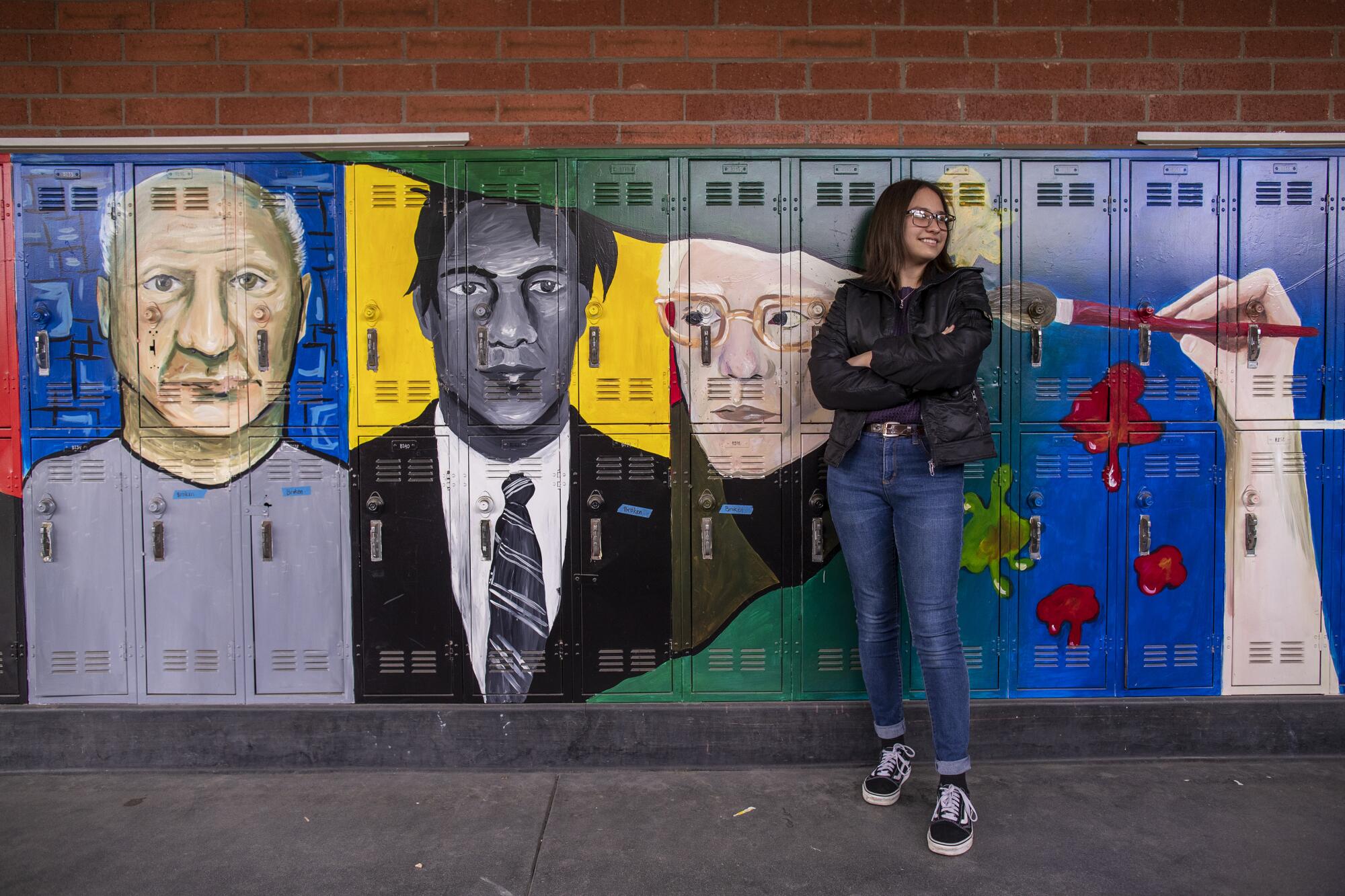
A year of learning to adapt for one sophomore
During speech tournaments in the fall of 2020, Meghan Webster would look out into the audience as she commanded the stage, punctuating her message with wide hand gestures.
But during a recent virtual tournament, Meghan carefully kept her gestures within her laptop camera’s frame. Yet she could not control the unstable WiFi. As she neared the end of her speech, her internet connection cut out.
When she reconnected, the judges allowed her to continue where she left off. She placed first in her category, oratorical interpretation.
Like others, with time and practice, Meghan turned remote schooling into a lesson of its own: resiliency, said her coach Kevin Tong. Meghan recently qualified for the state championships in April.
In a way, she said, she feels fortunate that she forfeited her sophomore year to the pandemic — she has two more high school years to have the chance to stand before a live audience.
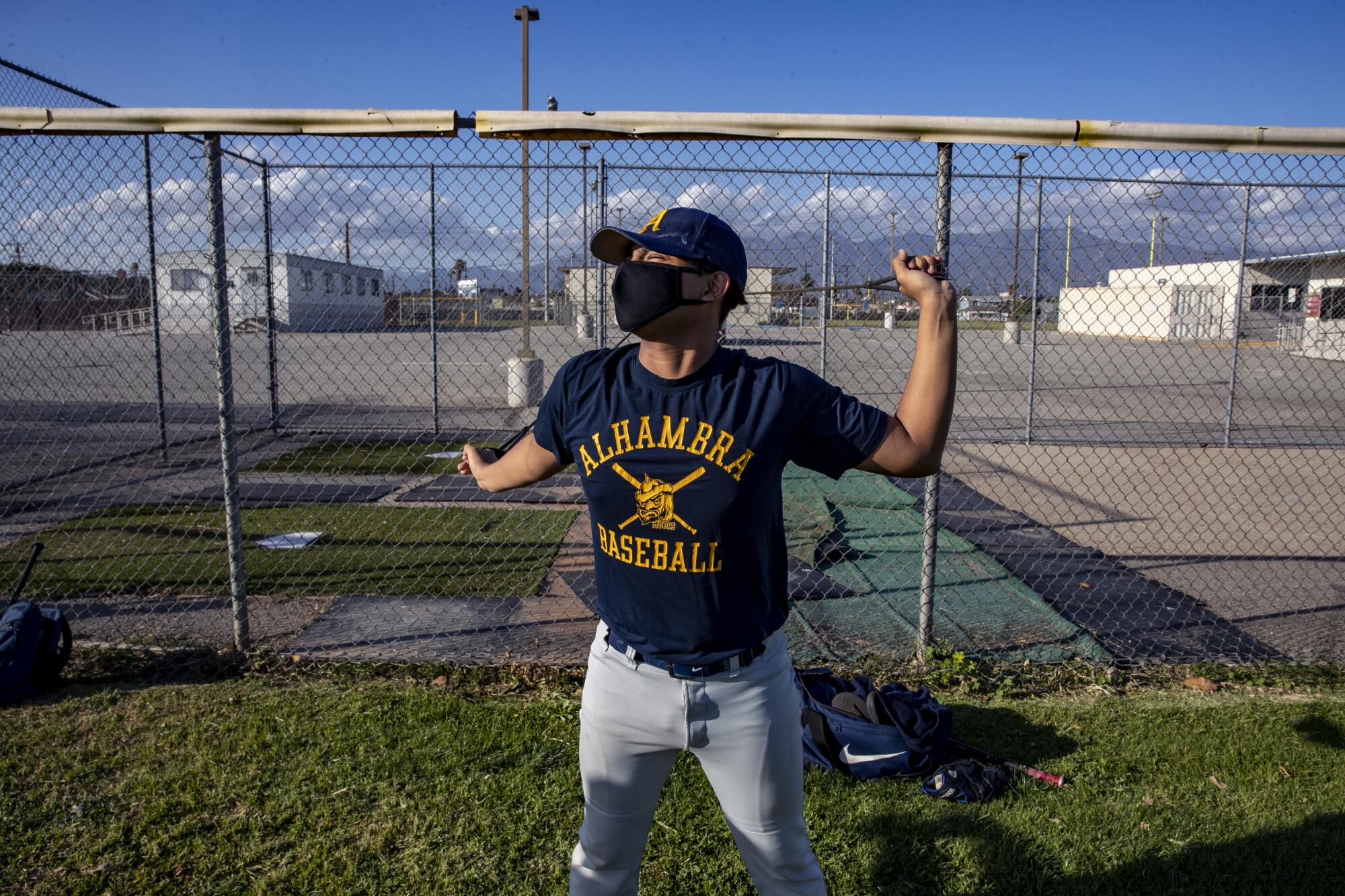
‘A loss of time’ for juniors
Junior year is often an academic trial for students intent on going to college.
“This year, to me, counts the most,” said 16-year-old Justin Flores. “Junior year is the most difficult because you’re also thinking about the SAT, ACT. ... It’s rough.”
Justin was at least able to avoid one stressful rite of passage, as he plans to apply to in-state universities that no longer require the standardized exams.
The World Health Organization announced the coronavirus outbreak had become a pandemic on March 11, 2020. Since then, the virus has seemingly touched all aspects of life in Southern California and beyond. The Times looks back on a full year of life in a pandemic.
In some ways, distance learning is easier, he admits. He can sleep later with an 8:30 a.m. start time. But routine classroom habits — raising a hand in class to speak, asking for help to better understand the material — are difficult in a virtual setting.
“I’m more hands-on,” he said. “It’s hard to [learn] over a screen.”
The restless junior has also tried to stay in shape after missing both basketball and baseball seasons. He misses clowning around with his teammates, and he’s anxious to get back. Last semester he earned straight A’s, but now he’s looking at A’s and Bs.
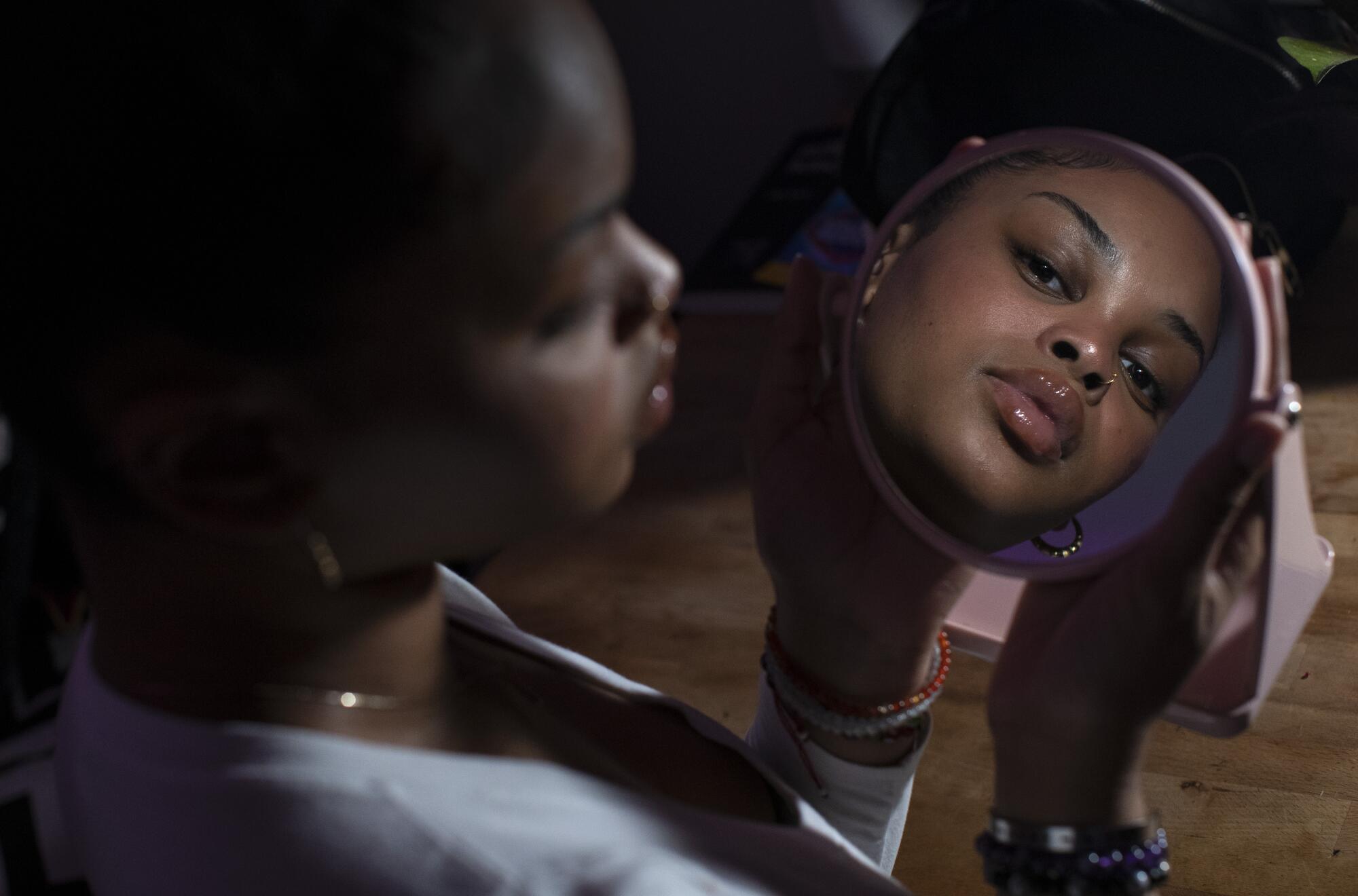
Leila Potter, 17, feels as if her life has been on pause — the academic rigor and structure she needs to excel evaporated.
“I feel like I’ve just missed a part of my life. A whole year was taken out from under me,” she said. “It feels like a loss of time.”
At times, Leila has felt alone and unmotivated. Procrastination sometimes led to turning in work late and a lower score. While she used to feel comfortable raising her hand in class, online her anxiety increases as she fears repeating a question or asking the wrong one with everyone listening.
Still, she tries to ground herself by thinking of her career goal: a labor and delivery nurse.
Although she learns best in a classroom, Leila said she understands the safety concerns. She and her parents have not yet decided whether she will return this spring. But senior year will be different.
“To have some hope that we are going to school is good enough for me.”
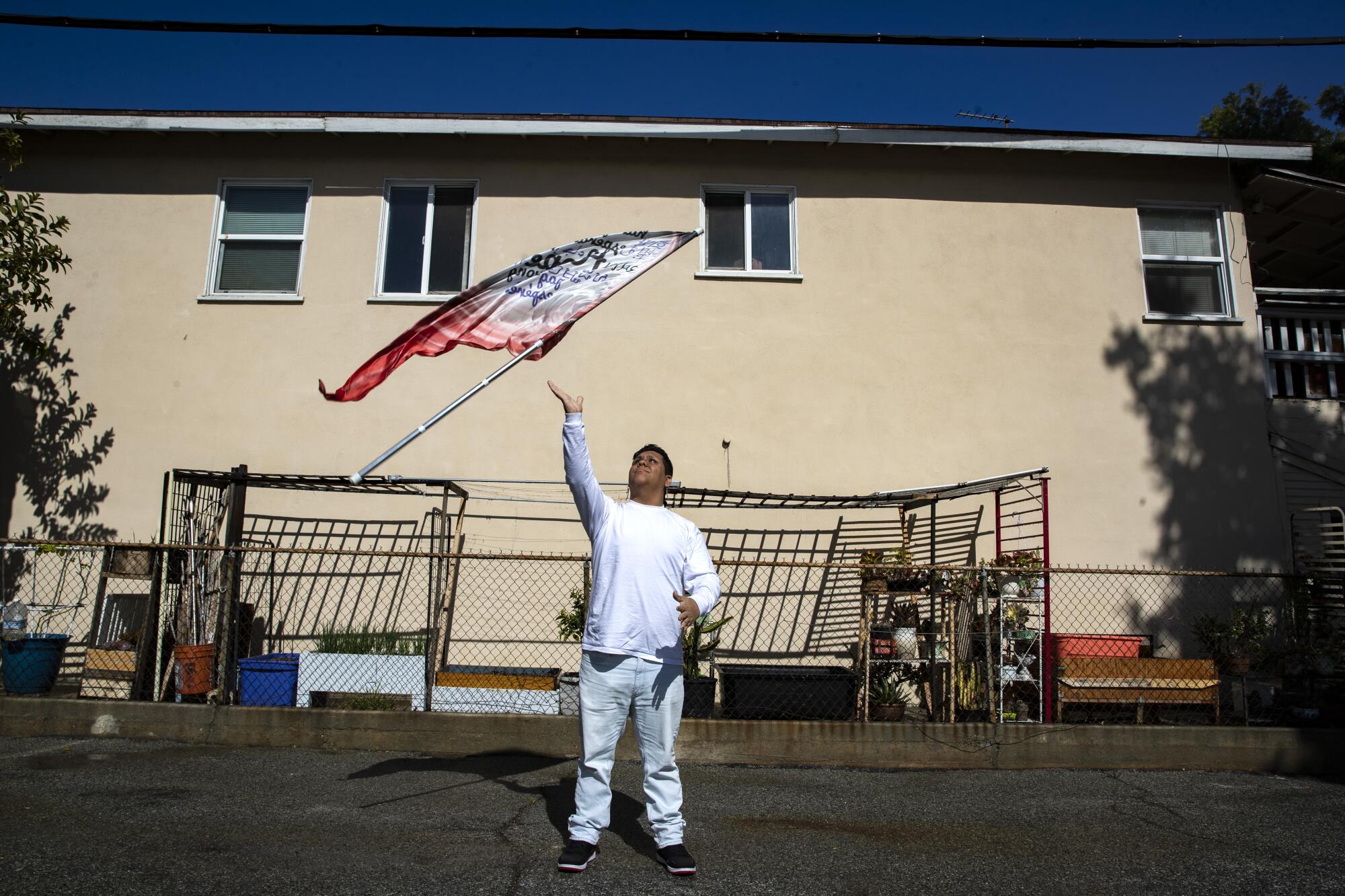
For seniors, a challenging year of lost opportunities, perseverance
In many ways, the seniors said they lost the most — a milestone year of memories replaced by solitude.
The separation from his classmates, however, offered a respite for Lucas Lozano, who is gay and proud. The 17-year-old said he would often get called names, sometimes homophobic slurs, when school was in session. That has stopped with online classes.
But the additional stress of the past year has also unearthed feelings of anxiousness and, at times, sadness.
He never got to practice routines for the school color guard or perform before cheering crowds at football games. His parents lost their jobs when the pandemic hit, and there was a time when they worried about paying the bills.
“I never felt stressed before, but I feel like this year, my brain is telling me, like, ‘this is what you’re going to be feeling for the next couple of months,’” he said. At times he has been unable to concentrate and puts off schoolwork that then piles up. His grades have suffered.
Before the pandemic, he was earning A’s and Bs. Now, he’s looking at Cs and Ds, and an F.
“I always get into my head too much,” Lucas said during a video call. “If I go too deep into thought about what we’re in and how this is going to end — or if it is going to end — I do get sad.”
To cope, he buries himself in books, and he’s currently reading a series that tells the backstories of the villains in Disney films. Sometimes, he’ll head outdoors to practice the last routine he learned for color guard before campus shut down, tossing his flag high into the sky.
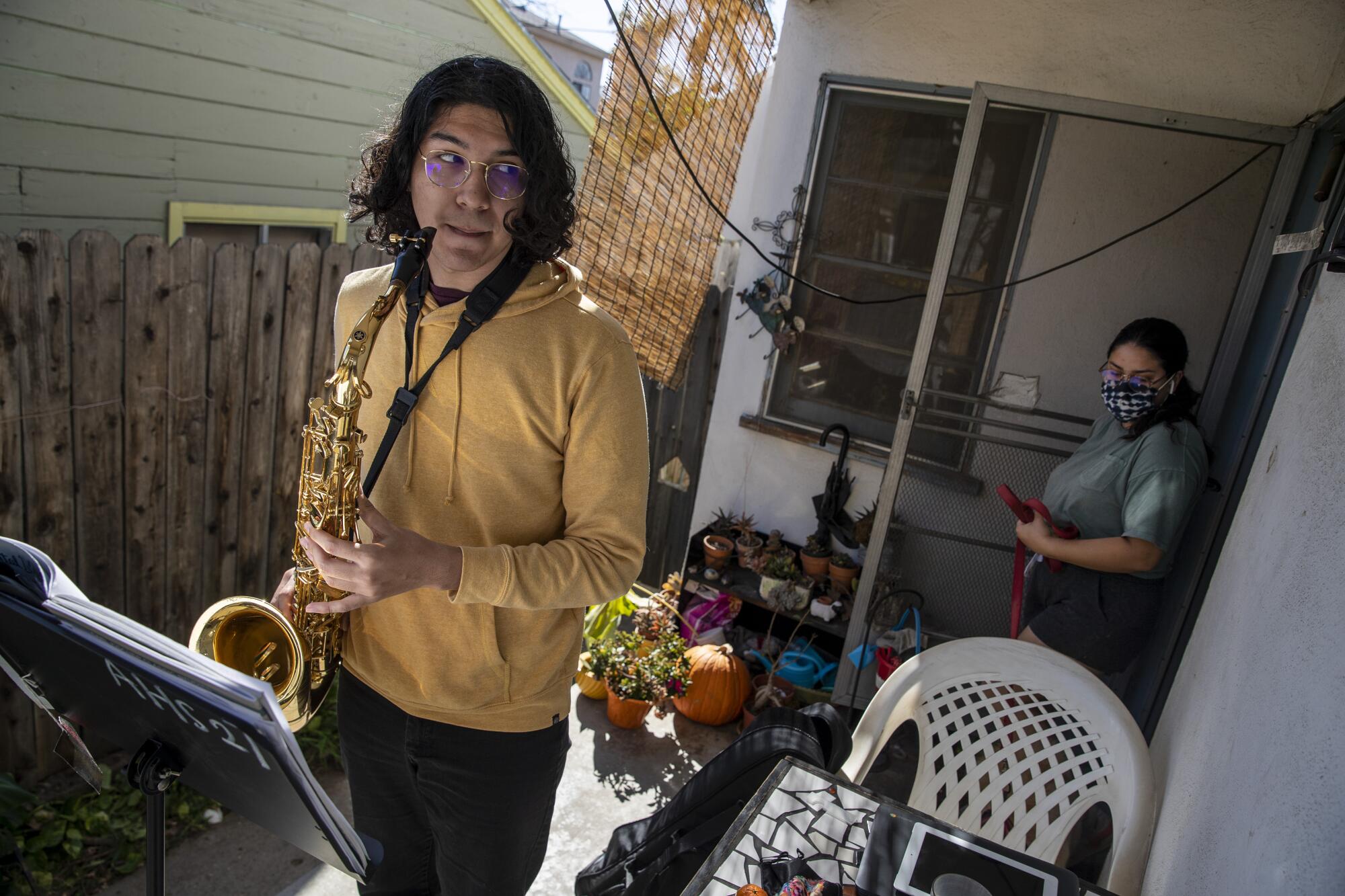
At home, Julio Illingworth, 18, has had to navigate online classes while his older siblings, who are in college, also attend classes remotely.
When he needs a quiet space, he slips outside to his porch. Although he misses his friends, Julio says his coursework has been lighter, his grades are strong and he’s dedicated more time to learning music, as he wants to study music composition in college.
Like other seniors who lost out on their junior year, he will never experience a high school prom. He doesn’t know yet if there can be a senior picnic or the traditional marching band senior send-off celebration. And he’s not even sure he will attend in-person classes.
“I wouldn’t want somebody’s life, somebody’s family member, on my hands just because I didn’t want to wait until things got safer,” he said. His mother has lost relatives in Mexico from COVID-19.
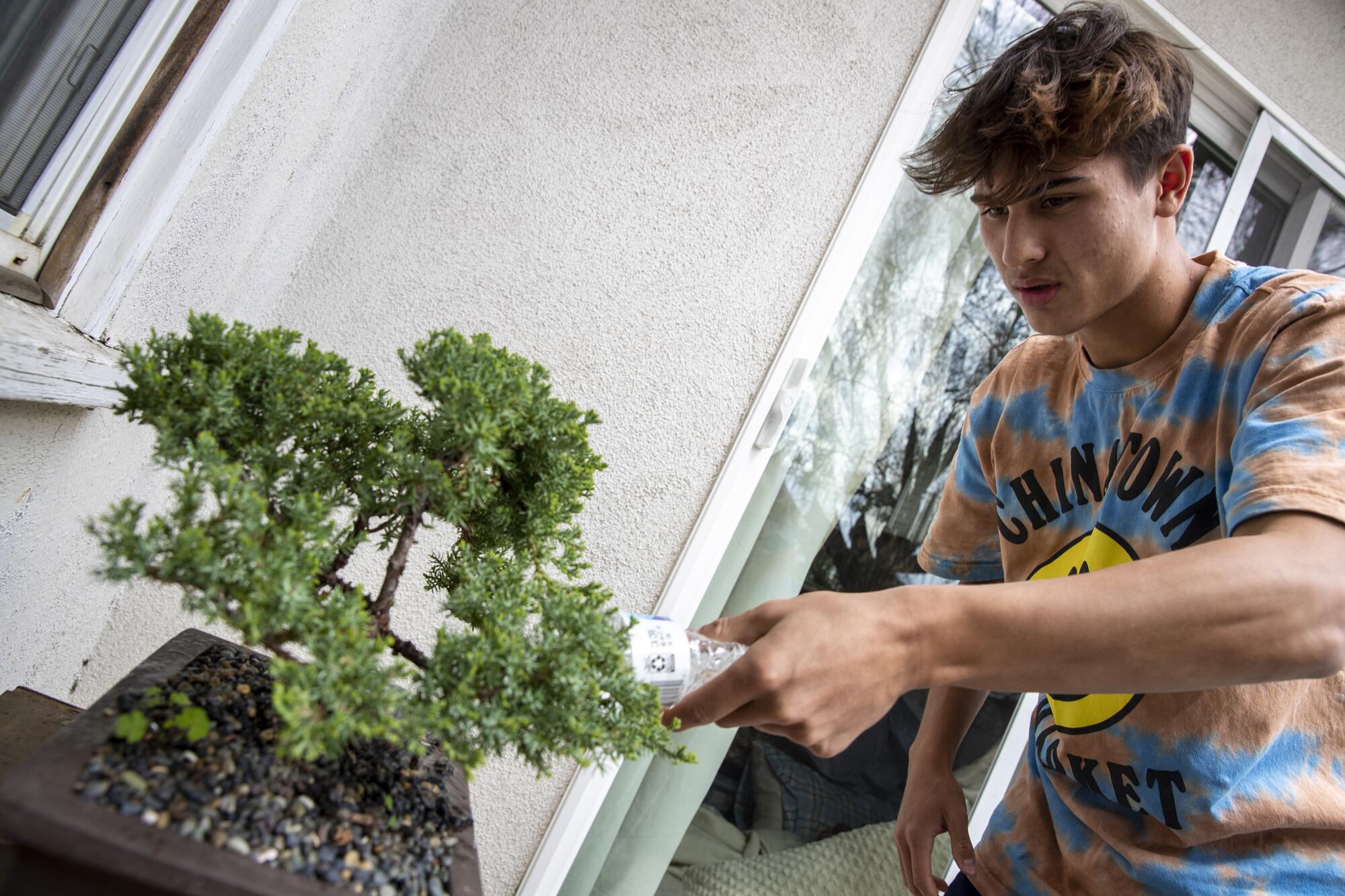
Kellen Gewecke’s days are quiet. He used to joke around with friends and get in trouble for talking in class. But nowadays, he waters and tends to his juniper bonsai tree in silence between classes.
As a student-athlete, he often hung out with his friends before and after practice. But after attending class online for several hours, he’s tired of staring at a screen — even to chat with friends. Instead, he often finishes up his assignments ahead of the due date and cooks dinner for his family, whom he sees more often.
“It’s been nice just to spend more time with my whole family,” he said.
Before the pandemic, Kellen dreamed of attending a university with a top-tier baseball program. He’s been playing ever since he was 3 years old, and his father, Steve Gewecke, coaches Alhambra High’s team.
Kellen’s dream is still there, but amended — his aspirations of playing in Hawaii are gone, he said, because team rosters have shrunk. But he’s still considering other schools.
His father has coached the Moors for the past 25 years. Seeing his son finish his high school baseball career without a season is “a bitter pill.”
“I tell him, and I tell myself, that’s out of our control. There’s nothing we can do about it,” Steve Gewecke said.
Kellen and his teammates met on Moor Field, near the high school, to practice for the first time in a year on a recent Tuesday. He hopes to return to classes, even if for a short time.
“Anything we can get at this point, I think, would be good,” he said.
Even if it’s just some type of in-person graduation, which Alhambra High is considering, to give seniors a proper goodbye.
More to Read
Sign up for Essential California
The most important California stories and recommendations in your inbox every morning.
You may occasionally receive promotional content from the Los Angeles Times.












